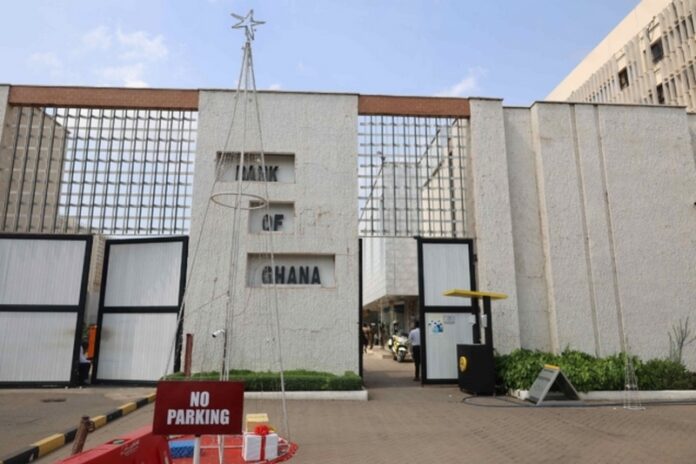The incoming National Democratic Congress (NDC) administration inherits a nation grappling with a multitude of economic challenges such as persistently high inflation, a weakened currency, rising public debt, and diminished public trust in financial institutions.
Against this backdrop, the appointment of the next Governor of the Bank of Ghana is arguably one of the most far-reaching decisions the president-elect will have to make.
The central bank governor must not only have the required experience and technical expertise to stabilise Ghana’s economy but also the leadership skills and vision to rebuild confidence, chart a sustainable course for restoring stability and growth, and mitigate future crises.
Understanding the Economic Context
Ghana’s current economic landscape is marked by severe financial strain, with the Bank of Ghana (BoG) at the centre of the storm.
The next central bank governor must grapple with an institution facing not only immense economic challenges but also a precarious financial position.
Among the most pressing issues include persistent and entrenched inflation which is eroding purchasing power, worsening inequality, and creating uncertainty for businesses and households.
There is also the issue of currency depreciation, which is further eroding public confidence, deterring foreign investment, and driving up the cost of imports.
Third is the issue of Ghana’s public debt crisis, which has led to unsustainable debt levels that have heavily strained fiscal resources, with the central bank compelled to provide financial support to the government in ways that have weakened its own financial standing.
The BoG reported substantial losses in its balance sheet, raising concerns about its ability to maintain monetary and financial stability.
Lastly is the erosion of confidence in the central bank which resulted from clear political interference, opaque decision-making, and unaccounted actions, such as excessive money printing to fund government expenditures.
These have undermined the BoG’s credibility both domestically and internationally.
Need for Hands-On Central Banking Expertise
Given these dire circumstances, addressing these issues requires a governor with hands-on experience in central banking and a proven track record in managing crises.
The next leader must have firsthand knowledge of the mechanics of monetary policy, forex management, financial regulation, and institutional reform.
This crisis demands more than just technical knowledge – it requires an individual capable of restoring public trust, rebuilding the BoG’s financial health, and ensuring its credibility.
A visionary leader with practical central banking expertise is essential to stabilise the economy and lay a sustainable foundation for growth.
The incoming governor will need to simultaneously tackle immediate economic pressures while restructuring the central bank’s internal operations and financial footing to regain credibility and fulfil its mandate effectively.
The new Governor must be able to implement monetary policy to achieve macroeconomic objectives such as controlling inflation, stabilising the local currency, and contributing to economic growth.
The tasks of inflation control, currency stabilisation, and managing public debt require a deep understanding of monetary policy and crisis management.
Essential Qualities and Expertise
The next governor must bring a wealth of theory, expertise and professional knowledge.
An advanced degree, ideally a PhD in economics, finance, or a related field, is highly desirable for such a role.
A PhD provides the analytical and theoretical grounding needed to manage monetary policy and address complex economic challenges. It also equips the holder with critical skills.
For example, an advanced knowledge of economic theory and modelling will be key to designing evidence-based policies and making decisions based on sound economic reasoning.
Also, a PhD lends the governor additional legitimacy, instilling confidence in both domestic and international investors and other stakeholders.
Equally critical is professional experience in economic management, central banking, or finance.
The ideal candidate should have a proven track record of handling issues such as inflation control, currency stabilisation, promoting financial stability and fostering financial inclusion.
Crisis Management and Strategic Vision
Ghana needs someone who can quickly address immediate challenges while formulating a clear, actionable long-term strategy.
Innovative thinking will also be essential. The global financial landscape is evolving rapidly, and Ghana must embrace new tools such as digital currencies, financial technologies, and green financing to remain competitive.
An effective governor must understand Ghana’s unique economic landscape, including its key sectors and vulnerabilities, while maintaining a global perspective. Familiarity with international financial institutions like the IMF and World Bank will be invaluable, especially given Ghana’s reliance on external support.
A Call for Experienced Leadership
The incoming central bank governor must not only address today’s challenges but also anticipate future ones, steering the country toward sustainable growth.
By prioritising experience, expertise, independence, and vision, the president-elect has an opportunity to appoint a governor who will play a transformative role in Ghana’s economic recovery.
In the face of crisis, the right leadership can turn adversity into opportunity, positioning Ghana for a brighter economic future.
This decision will define not just the central bank’s trajectory but the entire nation’s economic path. It must be made with the utmost care, foresight, and commitment to Ghana’s long-term prosperity.
********
The writer is a journalist and a student of Financial Market Regulation.

